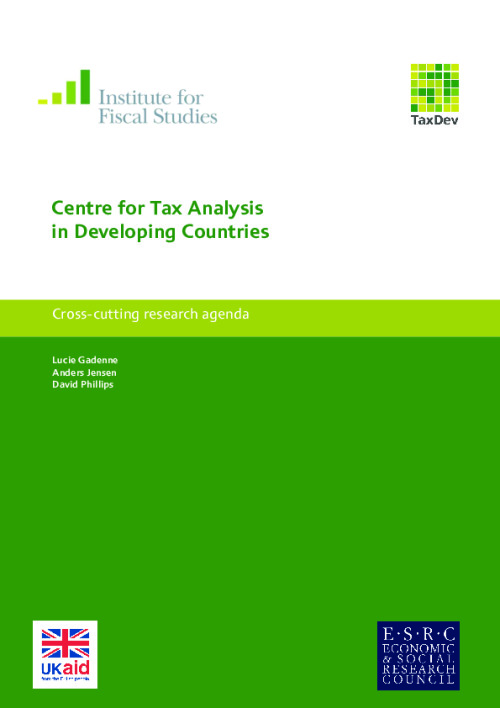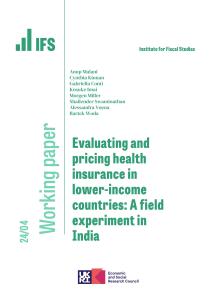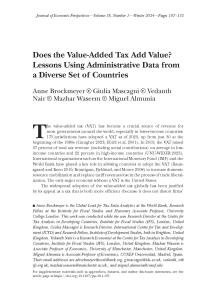The IFS’s Centre for Tax Analysis in Developing Countries (TAXDEV) was established in 2016 and aims to contribute to more effective tax policy-making in low and middle income countries through applied research and policy analysis.
The first component of the centre’s work involves partnering with the Governments of Ghana and Ethiopia to co-produce modelling tools and analyses of the key tax and benefit policy and administration issues that these countries face.
The second component of TAXDEV’s work is a broader programme of research on taxation in low and middle income countries which will draw on the empirical evidence from the in-country analysis, as well as theoretical and empirical evidence from elsewhere, to further develop the evidence base, providing valuable insights for a wide range of countries.
This document outlines the four areas of research which will inform the development of our “cross-cutting” research agenda.
Firstly, we will examine the extent to which preferential rates of VAT for certain goods and services, consumed disproportionately by poorer households, do actually help poorer households. We will do this by contrasting the costs and distributional effects of the preferential rates with other, more targeted, forms of redistribution.
Secondly, we will investigate the effect of VAT on firms’ compliance with the tax system and on their production decisions, contrasting it with the effect of simplified tax systems. Thus, we will generate evidence on the costs and benefits of operating simplified tax schemes for small firms, and setting relatively high VAT thresholds. We will also generate evidence on the tax gap, and on the efficiency of tax audits at different parts of the production chain.
Thirdly, we plan to explore more broadly the responses of firms to tax policy and administration thresholds. In particular we will estimate the extent to which firms bunch just below such thresholds, and investigate whether such responses reflect changes in reporting/evasion or real business behaviours.
Finally, we will examine issues related to international corporate tax competition, including the effects of special corporate tax regimes.












